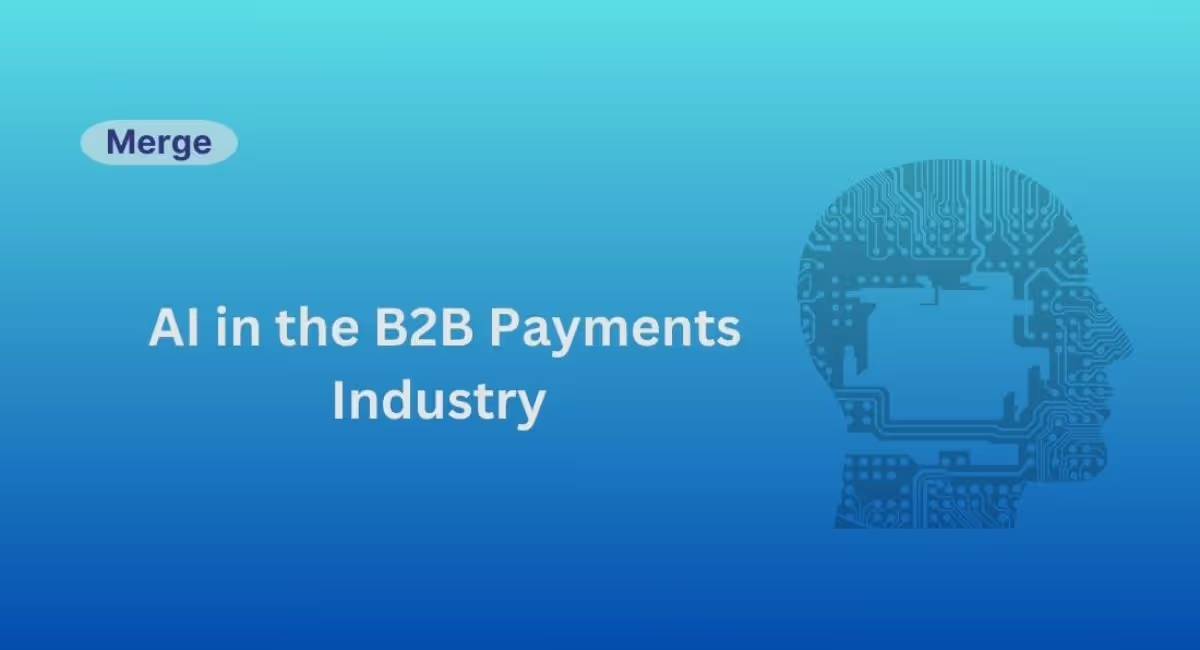From traditional banks to modern financial institutions, there is a surge in integrating AI capabilities, anticipating that the global investment in AI for the FinTech space could hit $22.60 billion by 2025.

B2B payments were, not so long ago, dominated by manual protocols and ageing systems, posing significant hurdles for businesses. Fast-forward to today, the landscape looks strikingly different. AI has rapidly transitioned from a novel concept to a cornerstone in this ecosystem. From traditional banks to modern financial institutions, there is a surge in integrating AI capabilities, anticipating that the global investment in AI for the FinTech space could hit $22.60 billion by 2025.
The intrinsic complexities of B2B transactions, which encompass sending purchase orders, managing invoices, and finalising payment terms, demand collaboration across multiple departments. Therefore, AI can change a lot in the industry as it has become adept at automating many of these repetitive tasks with enhanced precision and speed. Through smart algorithms, efficiencies in areas like accounting have been supercharged, reducing the necessity for labor-intensive interventions. Furthermore, innovative platforms are now branching out, providing a suite of value-added services, from working capital management to comprehensive logistics solutions.
The new wave of AI-powered solutions is heralding multiple advancements in the B2B payments sector such as:
Holistic Payment Automation: Beyond just expediting processes, the key lies in minimising errors, ensuring that multi-currency transactions, reconciliations, and payment schedules are executed flawlessly.
Redefining Credit Assessments: AI has also refined credit evaluations. By acting into both historical and real-time data, businesses are getting evaluated faster and with reduced biases, even in scenarios where traditional financial benchmarks fall short.
Fraud Detection and Compliance: AI has become an indispensable tool in the domains of fraud detection and regulatory compliance in the payments industry. In fact, banks and payment gateways employ AI to constantly monitor transaction patterns. For instance, if a company regularly makes payments to a specific region, but suddenly initiates a high-value transfer to an unfamiliar location, AI can flag this as suspicious, potentially thwarting an unauthorised transaction. Similarly, when processing international B2B payments, AI-powered systems assess risk by considering variables like transaction corridors, past dealings with the recipient entity, and any sanctions on the beneficiary country.
Additionally, to tackle the challenge of Anti-Money Laundering (AML), AI sifts through vast datasets, pinpointing transactions that could be part of complex money-laundering schemes. For Know Your Business (KYB) and Know Your Customer (KYC) checks, AI considerably reduces the time taken by analysing digital footprints of businesses and individuals, ensuring parties involved in a transaction are legitimate and adhering to financial regulations. This real-time, AI-driven scrutiny is pivotal in keeping the ever-evolving payment sector secure and compliant
The transformation being ushered in by AI within the B2B payment landscape is undeniably profound. It is not only helping to navigate the maze of transactional risks but also streamlining operations and maximising resource utility. As the sector continues its upward trajectory, it becomes evident that AI's is reshaping the B2B payments industry. With platforms embracing AI's full spectrum, from multi-currency management to predictive analytics, the horizon looks promising indeed. For more details on what we are offering at Merge, please reach out to hello@merge.money.